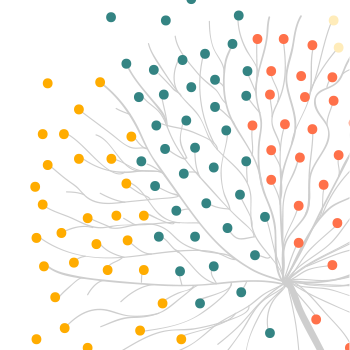
Understanding for a Complex World | Comprensión Para Un Mundo Complejo
t
- In today’s changing and increasingly complex world, what skills and knowledge must students understand?
- How can schools best support learners to become good citizens, thinkers, and innovators?
- How can these goals and approaches fit within national and international needs for standardized testing and curricula?
Únete a educadores de todo el mundo en el encuentro Project Zero Perspectives, que tendrá lugar en octubre de 2018 en Pamplona, España. Bajo el tema Comprensión para un Mundo Complejo, reflexionaremos en torno a las siguientes preguntas:
¿Qué habilidades y conocimientos deben aprender los estudiantes en un mundo cambiante y cada vez más complejo?
¿Cómo pueden ayudar los centros educativos a los estudiantes para que lleguen a ser buenos ciudadanos, pensadores e innovadores?
¿De qué manera podemos hacer compatibles estos objetivos de aprendizaje y enfoques pedagógicos con otros requerimientos, a nivel nacional e internacional, como las evaluaciones, los estándares de aprendizaje y el currículo?
Durante dos días los asistentes tendrán la oportunidad de participar en conferencias y talleres interactivos, realizados en colaboración con el Center for the Advancement and Study of International Education (CASIE), en los que podrán descubrir nuevos enfoques pedagógicos, estrategias y herramientas, desarrollados por investigadores del Proyecto Cero (Escuela de Graduados en Educación de la Universidad de Harvard). Estas jornadas se centrarán en investigaciones y buenas prácticas para responder a las siguientes preguntas:
Enseñanza para la comprensión. ¿Qué es la comprensión y cómo se desarrolla? ¿Qué es importante aprender hoy en día para poder enfrentarnos un futuro incierto? ¿Cómo podemos orientar la enseñanza y la evaluación hacia una comprensión profunda de aquellos temas que queremos que nuestros estudiantes aprendan?
Comprender para la competencia global:¿Cómo podemos desarrollar las habilidades necesarias para desenvolvernos en un contexto global? ¿Cómo podemos aprender a relacionarnos asumiendo las diferencias culturales y las distintas perspectivas? ¿Cómo podemos nosotros, como educadores, desarrollar nuestra propia competencia global junto con los estudiantes?
Pensar con complejidad. ¿Cómo podemos desarrollar las disposiciones para pensar acerca de y con complejidad? ¿Qué tipo de prácticas pueden realizar los profesores para ayudar a los estudiantes a razonar sobre y a relacionarse con un mundo complejo?
Entornos de aprendizaje: ¿Cuáles son las características de los espacios y entornos que apoyan la comprensión profunda, el aprendizaje lúdico y el pensamiento? ¿Cómo pueden los profesores y líderes educativos diseñar entornos de aprendizaje formales e informales que apoyen sus metas de aprendizaje?
El Colegio Irabia-Izaga, nuestro centro asociado, ha trabajado con las ideas del Proyecto Cero durante varios años, adaptando al español rutinas de pensamiento y otros marcos del Proyecto Cero.
Participarán ponentes de renombre a nivel internacional como David Perkins, Verónica Boix-Mansilla, Ron Ritchhart y Daniel Wilson. Ocuparán un lugar destacado los distintos talleres dirigidos por investigadores de Proyecto Cero y profesores expertos de España y de todo el mundo, en los que los participantes podrán ver cómo llevar a la práctica estas ideas.
El precio de la matrícula incluye los materiales para la conferencia, el desayuno, la comida y refrigerios durante los descansos.
Por primera vez Project Zero Perspectives ofrecerá interpretación simultánea inglés -español en las conferencias plenarias y en algunos talleres.
El Proyecto Cero es un grupo de investigación de la Escuela de Graduados en Educación de la Universidad de Harvard. Su misión es comprender y mejorar el aprendizaje, el pensamiento y la creatividad en las artes, así como en las disciplinas humanísticas y científicas, tanto a nivel individual como institucional.

-
-
-
-
-
-
Support PZ's Reach